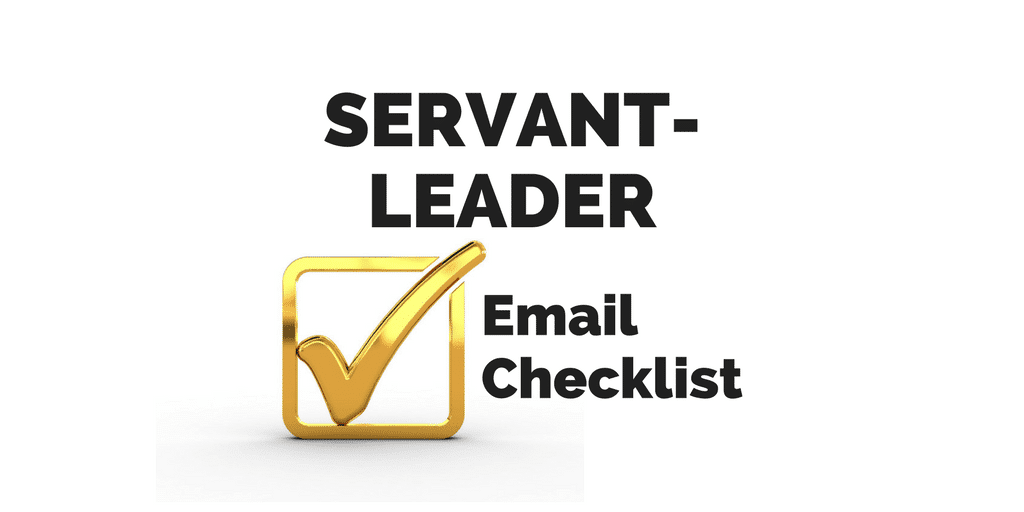What does an email say about its sender as a servant-leader?
More than you might think.
Here’s an 8-point checklist that might be helpful for aspiring servant-leaders in the workplace.
- Is email the right way to communicate the message? Email can be impersonal and easily misinterpreted. Maybe a call or a quick visit might be better. In my experience, the best leaders add a personal touch to their communication – smiles, handshakes, eye contact or some friendly chat.
- Is the email addressed democratically or by order of importance? Servant-leaders tend not to get hung up with hierarchy or seniority. They treat everyone with equal respect. So, in the email’s “TO” line, the boss isn’t necessarily first and the administrative assistant last. Alphabetical is a better way to go.
- Are the right people copied? Copying people who don’t need the email wastes their time. Not copying people who do need the email can erode trust. And nothing says, “I think I’m really important” – or, “I lack humility” – like copying the whole world. A couple of extra seconds on the email’s “CC” line is worth it.
- Is the subject line helpful? Everybody is busy. Everybody gets way too many emails. So, help everybody out. Use a “SUBJECT” line that is informative and sortable. Don’t use a subject line like “Hi” or “Idea” – or worse, none at all. Small thing, yes, but it shows a desire to make work life a little easier for others.
- Does the length serve the addressed reader? Does the email recipient like writing that is expansive and detailed? Or short and to the point? As the email author (and a servant-leader) it’s not about you. It’s about your audience. Know that audience and serve its needs. Even in little things like email.
- Does the email contain thanks? A line or two of thanks separates a good servant-leader email from a great servant-leader email. Cultivate gratitude as a habit – including an emailing habit. At the very least, you can almost always tuck a thanks-you in at the end of everything you send. Indeed, new research shows that “thanks” works well as a closing.**
- Is the email sent at a reasonable hour? Sending a routine email to your boss at 3:00 AM will not prove how hard you work; more likely, it will prove how disorganized you are. And sending an email to your direct reports at 3:00 AM will probably do the same . . . plus, I wonder, do you think doing so might even tick them off . . .
- Does the email have a reference to mission? Connecting followers to a mission is one of the key practices of servant-leaders in the workplace.*** It’s easy to add the company mission to your signature line as an email program preference. I say, if you got it – a mission, that is – flaunt it!
What do you think of this checklist? What would you add?
Let us know.
As always, we appreciate your views.
Thanks!
Joe
Be sure to download our latest ebook, Servant Leadership in the Workplace: A Brief Introduction. It’s free!
_____________________________
* Like email, meetings are a fact of business life. See what you think of this post: “The Servant-Leader Meeting: A 20-Point Checklist”
** Email productivity firm Boomerang looked at closings in over 350,000 email threads, and found that certain email closings deliver higher response rates. I bet you can guess which closing won. Here’s Boomerang’s interesting article on the subject: “Forget ‘Best’ or ‘Sincerely,’ This Email Closing Gets the Most Replies”
*** More FYI: “Servant Leadership – 3 Workplace Practices”

